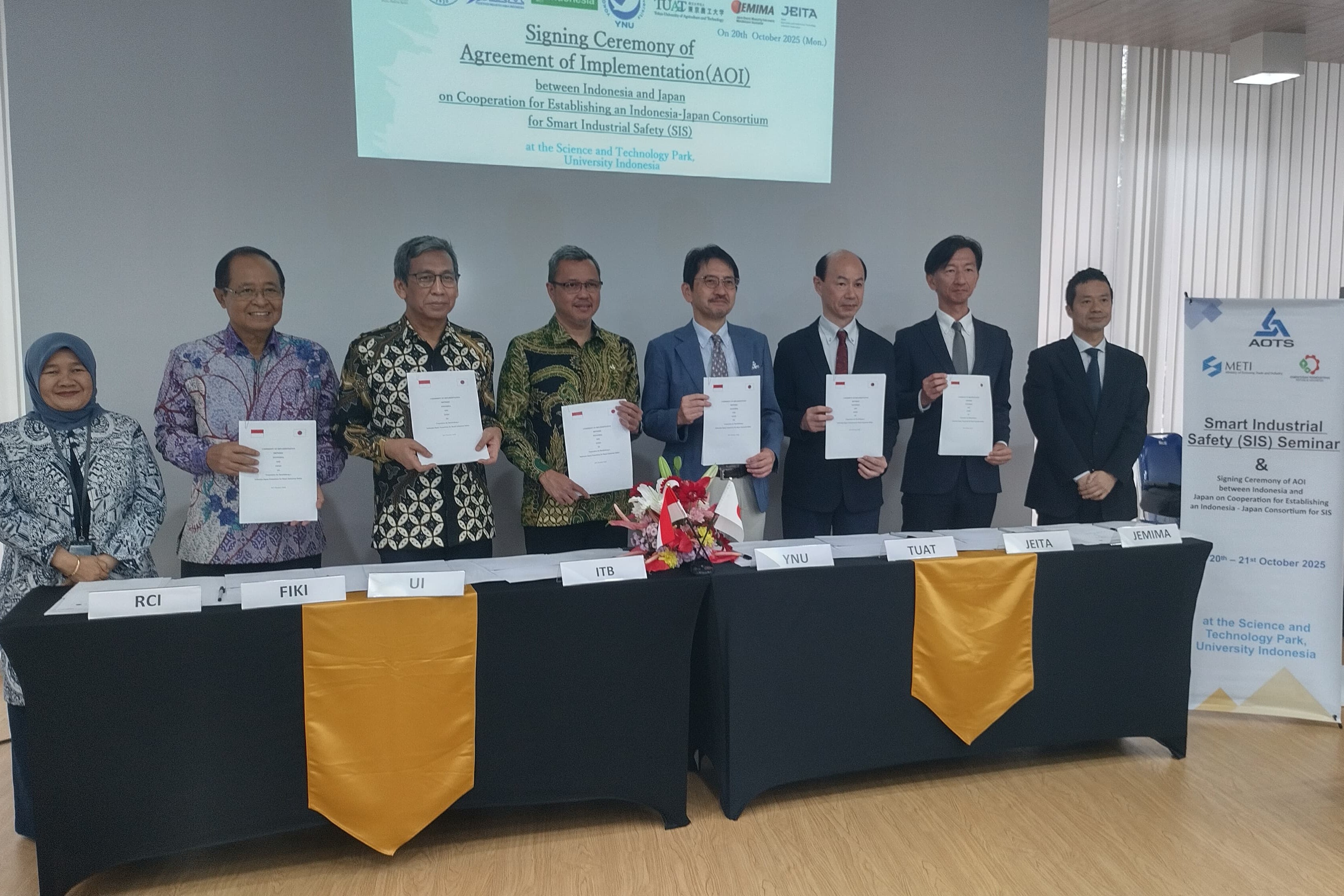The Ministry of Industry has reinforced its commitment to implementing Smart Industrial Safety (SIS) through the Indonesia-Japan Consortium for Smart Industrial Safety (IJCSIS). This initiative supports the adoption of Industry 4.0 technologies and artificial intelligence to improve workplace safety in Indonesia’s manufacturing sector.
Minister of Industry Agus Gumiwang Kartasasmita highlighted the importance of digital technologies and intelligent systems in enhancing workplace safety. “By leveraging digital technologies and intelligent systems, SIS not only plays a key role in maintaining safety but also improves industrial process efficiency,” he said in Jakarta on Friday, October 31, 2025.
Chemical Industry Identified as High-Risk Sector
The chemical industry has become a primary focus for SIS due to its high-risk nature. The Ministry marked this commitment through a seminar and the signing of the SIS implementation agreement for the chemical sector, represented by Director of Upstream Chemical Industry Wiwik Pudjiastuti. The event was held at Science Techno Park, University of Indonesia, Depok.
Wiwik noted, “Indonesia currently holds a strategic position as a chemical industry hub in Southeast Asia, supporting both domestic demand and global supply chains.”
Positive Growth alongside Safety Challenges
The national chemical industry has shown positive trends. In the first half of 2025, the chemical, pharmaceutical, and textile sectors recorded GDP growth of 6.70%, contributing 3.82% to national GDP. Exports reached USD 25.89 billion, while total investment amounted to IDR 93.93 trillion.
“This performance shows strong optimism for the competitiveness of Indonesia’s chemical industry and affirms investor confidence in long-term industrial prospects,” Wiwik said.
However, she emphasized that rapid growth brings challenges in managing workplace safety and hazardous chemicals. “Industrial growth must prioritize safety and sustainability. Workplace safety must be the foundation of all industrial activities,” she added.
Indonesia-Japan Collaboration for Technology-Based Safety
The Indonesia-Japan consortium reflects government action to implement smart, technology-driven industrial safety systems, especially in the chemical sector. The collaboration involves government agencies, academia, and industry players from both countries.
- Indonesia: University of Indonesia (UI), Institut Teknologi Bandung (ITB), Federation of The Indonesian Chemical Industry (FIKI), Responsible Care Indonesia (RCI)
- Japan: Tokyo University of Agriculture and Technology (TUAT), Yokohama National University (YNU), Japan Electric Measuring Instruments Manufacturers’ Association (JEMIMA), Japan Electronics and Information Technology Industries Association (JEITA)
The partnership also promotes workforce development through technology-based safety training and knowledge exchange. Wiwik said, “Competent and technology-savvy human resources are the spearhead in ensuring Smart Industrial Safety is implemented effectively.”
Regulatory Framework Supports Safety Implementation
Previously, the Ministry issued Ministerial Regulation No. 19/2019 on Emergency Prevention and Response for Chemicals in Industrial Activities. This regulation requires chemical industries to conduct risk assessments and prepare emergency procedures.
Wiwik added, “Collaboration with Japan opens opportunities for technology transfer, joint research, and human resource capacity building in industrial safety.”
PHOTO: KEMENPERIN
This article was created with AI assistance.
Read More






 Thursday, 05-02-26
Thursday, 05-02-26







